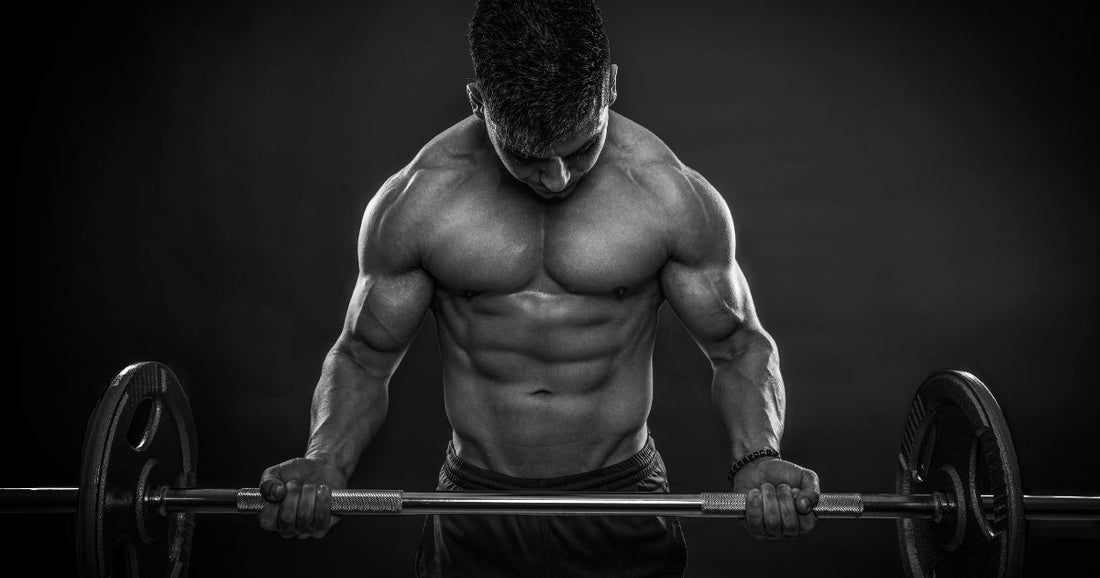
Why Carbs Are Essential for Muscle Building and Performance
Share
If you want to boost your results and perform better in the gym, it's not enough to focus only on protein, you need to pay attention to carbs too. Carbohydrates give your body the energy it needs to power through tough workouts, recover faster, and build muscle more effectively. Whether you're a seasoned bodybuilder, a strength athlete, or just getting started with fitness, understanding how carbs work can give you a serious edge. In this blog, we’ll explore why carbs matter, how they fuel your training, and how to include the right ones in your diet to support your fitness goals.
What Are Carbohydrates?
Carbohydrates, or carbs, are sugar molecules. Along with proteins and fats, they are one of the three main nutrients in food and drinks.
Your body breaks down carbs into glucose, which is also called blood sugar. Glucose is the main energy source for your cells, tissues, and organs. It can be used right away or stored in your liver and muscles for later.
What Are The Different Types of Carbohydrates?
Carbohydrates come in three main types:
Sugars are simple carbohydrates. They show up naturally in fruits, vegetables, and milk. People also add them to foods like candy, desserts, soda, and many processed snacks.
Starches are complex carbohydrates. They form when many simple sugars link together. Your body breaks them down into sugars to use for energy. You can find starches in foods like bread, pasta, cereal, potatoes, peas, and corn.
Fiber is another type of complex carbohydrate. However, your body can’t fully break it down. As a result, fiber helps you feel full and prevents overeating. It also supports digestion and may lower cholesterol and blood sugar levels. You can get fiber from plant-based foods such as fruits, vegetables, beans, nuts, seeds, and whole grains.
Why Are Carbohydrates Important for Muscle Growth?
Carbohydrates play a key role in building muscle and supporting bodybuilding because they give the body its main and most effective source of energy. Here’s why carbohydrates matter:
-
They Fuel Your Workouts
Weightlifting and resistance training need a lot of energy. During high-intensity exercise, your body turns to carbs as its top fuel choice. It stores carbs as muscle glycogen, which your muscles break down during workouts to create the energy needed for movement and strength. -
Storing Glycogen in Muscles
Your body stores glycogen a type of carbohydrate in your muscles and liver. During long and intense workouts, muscle glycogen becomes especially important because it helps keep your energy levels steady. When you maintain good glycogen levels, you can avoid early fatigue. As a result, you can power through tough workouts and train more effectively. -
Support Muscle Recovery
After tough workouts, your body uses up its glycogen stores. Eating carbs right after exercise quickly refills those stores and helps your muscles recover faster. When you combine carbs with protein after your workout, you boost muscle repair and speed up recovery. This combo creates the best conditions for building muscle. -
Regulate Hormone Levels
Carbs also affect your hormone levels, especially cortisol and testosterone. When you don’t eat enough carbs, cortisol (your stress hormone) can rise, which makes it harder to build muscle. On the other hand, eating enough carbs keeps your hormones balanced and supports muscle growth.
Carbohydrates Food Chart
Many everyday foods contain carbohydrates. Here are some common examples:
-
Grains like bread, pasta, noodles, crackers, cereal, and rice
-
Fruits such as apples, bananas, berries, melons, mangoes, and oranges
-
Dairy products like milk and yogurt
-
Legumes including beans, lentils, and peas
-
Snack foods and sweets like cookies, cakes, candy, and other desserts
On the other hand, some foods have very few carbs. These include meat, fish, poultry, certain cheeses, nuts, and oils.
How Many Carbs Should You Consume During Bodybuilding?
Everyone needs a different amount of carbs based on their age, gender, health, and fitness goals like losing or gaining weight. On average, aim for 45% to 65% of your daily calories from carbs. If you follow a 2,000-calorie diet, that’s about 275 grams of carbs a day. Your needs may be higher or lower depending on your lifestyle. To support your energy needs, especially during exercise, consider using energy supplements for workouts as part of your nutrition plan.
Final Thoughts
To wrap it up, carbs play a key role in building muscle. They give you energy to train hard, help your muscles recover, protect your muscle mass, and keep your hormones in check. If you cut carbs too much, you could slow down your progress and hold back your gains. So instead of cutting them out, focus on balance. Eat the right amount of carbs, and your muscles will grow stronger and faster.
